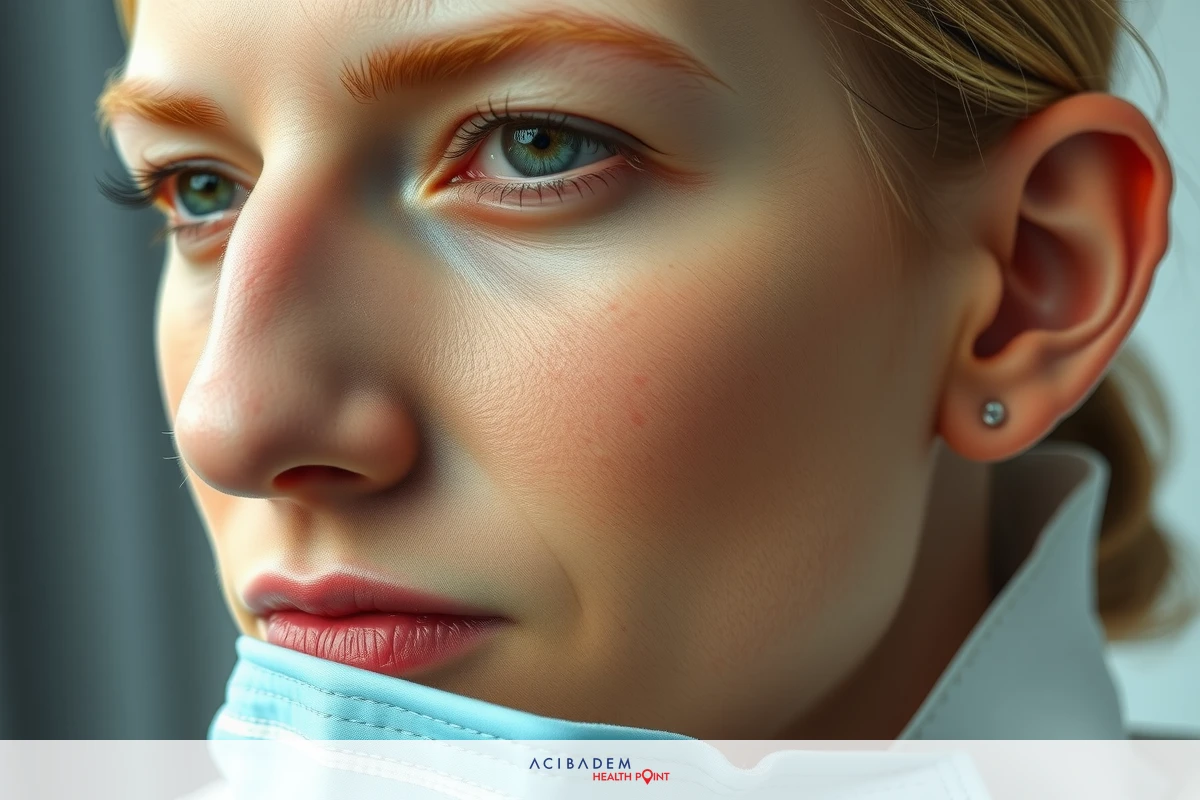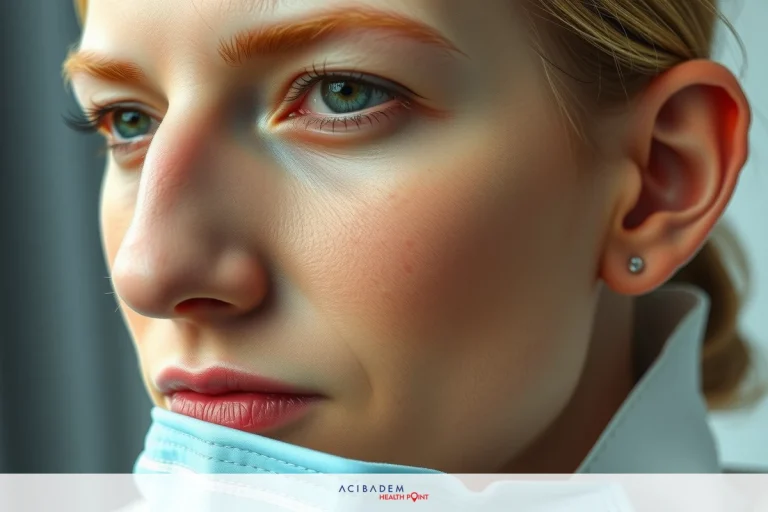Can Rhinoplasty Cause Eustachian Tube Dysfunction?
Can Rhinoplasty Cause Eustachian Tube Dysfunction? Rhinoplasty, the practice of reshaping one’s nose for functional or cosmetic reasons, carries with it a plethora of considerations. Each individual presents a unique anatomical structure and physiological response to medical interventions. Hence, understanding the potential implications on various bodily functions becomes critical.
One such concern is the possible impact on eustachian tube functionality – an aspect vital for maintaining optimal ear health. The question arises – can rhinoplasty induce eustachian tube dysfunction? This query necessitates careful examination of scientific insights related to this subject matter while taking into consideration patients’ experiences post-surgery.
Addressing these concerns requires a comprehensive perspective that encompasses not just surgical details but also post-operative care strategies aimed at preserving ear health following rhinoplasty. Striking a balance between gaining desired aesthetic changes and ensuring minimal disruption to normal body functions forms the core focus here.
Rhinoplasty: The Inside Story
Rhinoplasty, often colloquially referred to as a “nose job,” is primarily a surgical intervention involving the reshaping of the nose. It’s not merely an aesthetic procedure; it also bears significant functional implications. The surgery aims at correcting or improving nasal functionality and structure, addressing issues such as deviated septum, congenital defects, trauma-induced deformities, or respiratory impediments.
The complexity of rhinoplasty stems from the intricate anatomy of the nose itself. Composed of bone in its upper third and cartilage in its lower two-thirds, varying thicknesses and strengths characterize these materials across different individuals. This diversity necessitates personalized surgical approaches for each patient undergoing rhinoplasty – no one-size-fits-all solution exists here.
Rhinoplasty can be divided into open and closed methods based on incision placement: either inside (closed) or outside (open) the nostrils. Each method comes with its unique pros and cons concerning scarring visibility, operative time lengthiness, postoperative swelling duration among others factors. These details contribute directly to patients’ experiences after surgery – including potential complications like eustachian tube dysfunction – underscoring the importance of understanding what nascent changes might follow this procedure.
Eustachian Tube Dysfunction
Eustachian tube dysfunction manifests when the eponymous tubes, which connect the middle ear to the back of your throat, fail to open or close properly. These tubes are vital for maintaining pressure equilibrium between your middle ear and atmospheric pressure – a critical balance for normal hearing function. When disrupted, this can lead to various uncomfortable symptoms such as tinnitus (ringing in the ears), fullness sensation in the ear, pain or discomfort and hearing loss.
The causes of eustachian tube dysfunction are varied and numerous. Often it is linked with conditions that cause inflammation or fluid build-up like allergies or sinus infections. However, it may also occur due to anatomical abnormalities including nasal polyps or a deviated septum – issues that rhinoplasty often aims to address.
What makes understanding eustachian tube dysfunction particularly complex is its potential link with rhinoplasty. One might naturally assume that rectifying structural defects through nasal surgery would alleviate any related dysfunctions; however, reports indicate some patients experience onset or worsening of these symptoms postsurgery. This raises important questions concerning complications associated with rhinoplasty and necessitates further exploration into how surgical intervention might inadvertently affect eustachian tube

functionality.
Potential Link with Rhinoplasty
The possible connection between rhinoplasty and eustachian tube dysfunction presents an intriguing and complex subject of study. Despite the primary aim of rhinoplasty being the rectification of nasal structural issues, it is not devoid of complications. One such potential complication that may arise in certain cases is eustachian tube dysfunction.
In trying to understand this link, one needs to delve into the intricacies of nasal anatomy and how surgical modifications might impact other interconnected structures like the eustachian tubes. A key consideration here involves edema or swelling postsurgery which could potentially impact normal functioning of these tubes leading to a temporary or prolonged state of dysfunction.
However, drawing definitive conclusions on this relationship can be challenging due to individual variability in surgical experiences. Factors such as existing health conditions, anatomical peculiarities, surgical approach used (open vs closed), extent and nature of corrections made during surgery among others play significant roles in determining post-operative outcomes including potential ear health complications. Thus while some individuals might experience onset or worsening eustachian tube symptoms following rhinoplasty; others may remain unaffected – making it necessary for prospective patients to discuss these possibilities thoroughly with their healthcare providers before proceeding with surgery.
Maintaining Ear Health After Rhinoplasty
Post-operative care following rhinoplasty is of utmost importance to ensure a smooth recovery and preserve ear health. This entails not just wound care but also strategies aimed specifically at reducing the risk or managing any potential eustachian tube dysfunction symptoms that may arise.
- Regular Check-ups: Regular follow-up appointments with your healthcare provider can help monitor healing progress and catch any potential complications early on.
- Nasal Decongestants: These medications can aid in reducing nasal swelling post-surgery, thereby helping maintain normal function of interconnected structures like the eustachian tubes.
- Eustachian Tube Exercises: Certain maneuvers such as swallowing, yawning or gentle blowing while pinching the nostrils closed (Valsalva maneuver) might assist in opening up clogged eustachian tubes.
- Hydration & Humidity: Keeping yourself well-hydrated and using a humidifier can prevent drying out of nasal passages which could otherwise exacerbate symptoms associated with eustachian tube dysfunction.
- Avoidance of Pressure Changes: If experiencing discomfort related to eustachian tube functionality, avoiding activities that involve sudden pressure changes such as flying or diving until you receive clearance from your healthcare provider would be prudent.
Remember – each individual’s recovery trajectory varies greatly; hence it’s crucial to tailor these practices based on personalized advice from your medical professional overseeing the surgery and subsequent healing phase.
Frequently Asked Questions
Can rhinoplasty lead to eustachian tube dysfunction?
While it is not a common complication, some individuals undergoing rhinoplasty have reported onset or worsening of eustachian tube dysfunction symptoms post-surgery. The exact cause and incidence rate remain subjects of further study.
What can I do to prevent or manage eustachian tube dysfunction following rhinoplasty?
Regular follow-up appointments, use of nasal decongestants as directed by your healthcare provider, practicing certain exercises aimed at opening up clogged tubes, staying well-hydrated and avoiding activities involving sudden pressure changes might aid in prevention or management. Always consult with your healthcare provider for personalized advice.
Will everyone experience ear health issues after a nose job?
Not necessarily. Each individual's response to surgery varies greatly based on factors like existing health conditions, anatomical peculiarities among others. Some people may experience complications affecting ear health while many others won't.
The duration varies widely from person-to-person based on the extent and nature of surgical modifications made along with individual healing rates. Discussing this query thoroughly with your healthcare provider would provide more accurate information tailored specifically for you.











